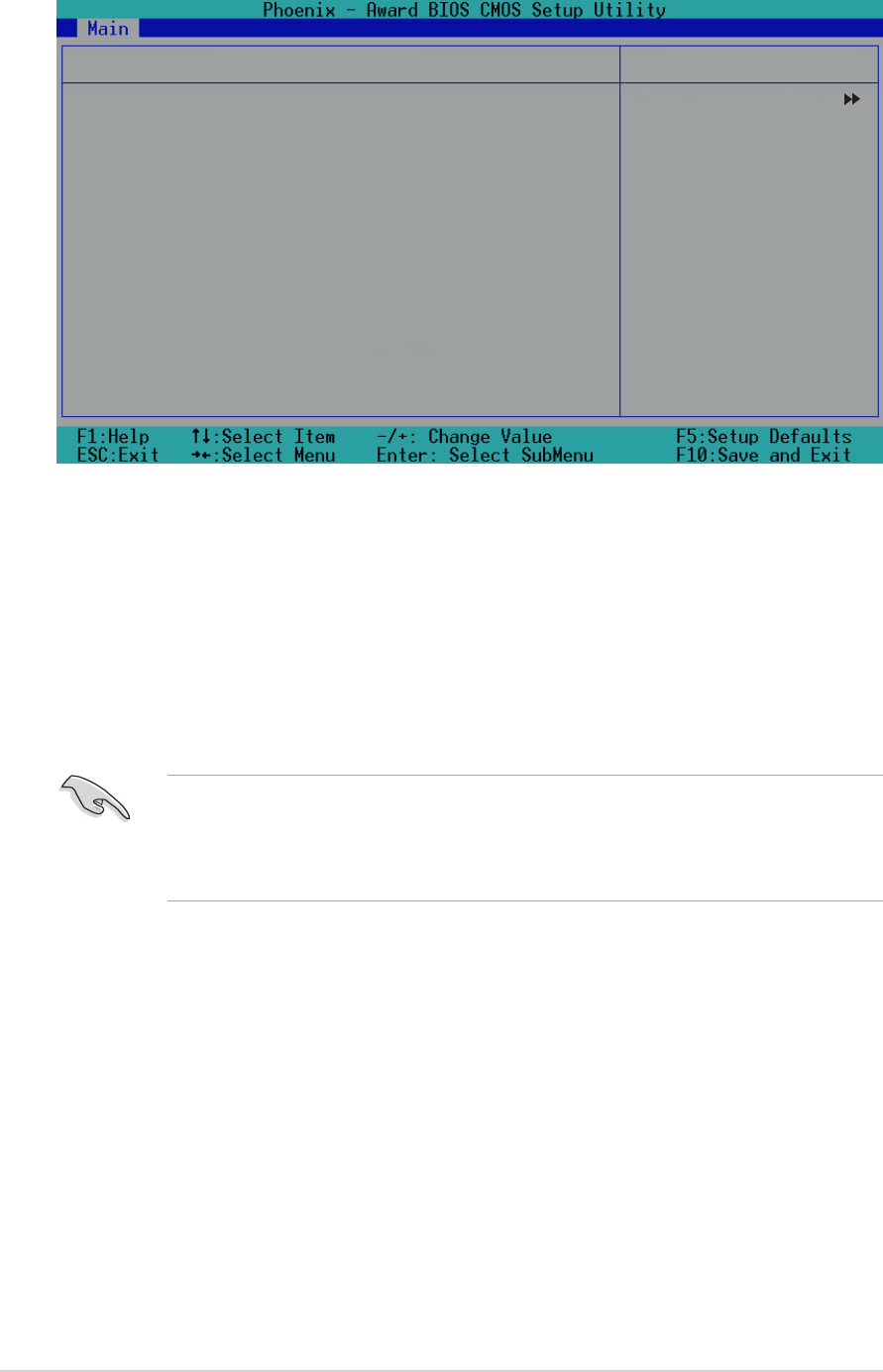
5-125-12
5-125-12
5-12
Chapter 5: BIOS informationChapter 5: BIOS information
Chapter 5: BIOS informationChapter 5: BIOS information
Chapter 5: BIOS information
5.3.55.3.5
5.3.55.3.5
5.3.5
Primary and Secondary Master/SlavePrimary and Secondary Master/Slave
Primary and Secondary Master/SlavePrimary and Secondary Master/Slave
Primary and Secondary Master/Slave
Primary IDE Master [Auto]Primary IDE Master [Auto]
Primary IDE Master [Auto]Primary IDE Master [Auto]
Primary IDE Master [Auto]
Select [Auto] to automatically detect an IDE hard disk drive. If automatic
detection is successful, Setup automatically fills in the correct values for
the remaining fields on this sub-menu. If automatic detection fails, this may
be because the hard disk drive is too old or too new. If the hard disk was
already formatted on an older system, Setup may detect incorrect
parameters. In these cases, select [Manual] to manually enter the IDE hard
disk drive parameters. Refer to the next section for details.
Before attempting to configure a hard disk drive, make sure you have
the correct configuration information supplied by the drive
manufacturer. Incorrect settings may cause the system to fail to
recognize the installed hard disk.
Primary IDE Master [Auto]
Access Mode [Auto]
Capacity 0 MB
Cylinder 0
Head 0
Sector 0
PIO Mode [Auto]
UDMA Mode [Auto]
Transfer Mode None
Select Menu
Item Specific Help
Press [Enter] to
select.
IDE Primary Master
Access Mode [Auto]Access Mode [Auto]
Access Mode [Auto]Access Mode [Auto]
Access Mode [Auto]
This item allows the user to select the sector addressing mode.
Configuration options: [CHS] [LBA] [Large] [Auto]
PIO Mode [Auto]PIO Mode [Auto]
PIO Mode [Auto]PIO Mode [Auto]
PIO Mode [Auto]
This option lets you set a PIO (Programmed Input/Output) mode for the
IDE device. Modes 0 through 4 provide successive increase in performance.
Configuration options: [Auto] [Mode 0] [Mode 1] [Mode 2] [Mode 3]
[Mode 4]


















